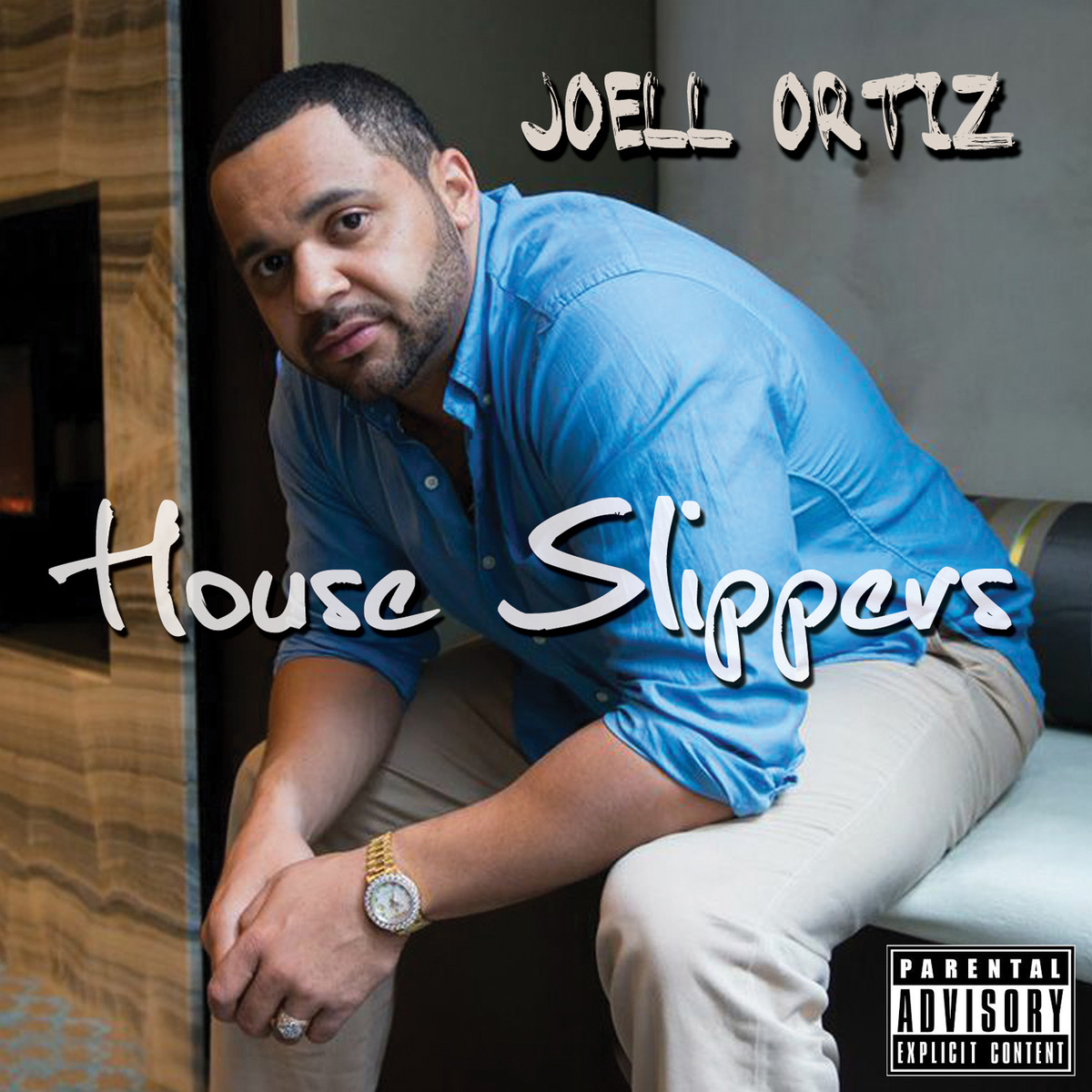
Joell Ortiz, one fourth of the Slaughterhouse super group, released his third solo studio album House Slippers this past Tuesday. 12 tracks deep and filled with streams of consciousness of pure lyrical genius and gritty Brooklyn flow, House Slippers is strong and impressive. Although the insert of R&B fused records and attempts at crossover sound seem ill fitting for the project and even bizarre. Boldly spitting “This ain’t for radio play, this is for the radio Raheem’s who let the radio play” on the title track and then creating an absurdly pop record featuring the “my honey bun, my sugar pie” hook in “Candy,” brings confusion to the cohesion of the album and many of Ortiz’s forceful, radio protesting lyrics. Nevertheless, when Joell is in his element using his exceptional wordplay to pay homage to both the golden era of hip-hop and the soul fathers who played endlessly in his crib growing up, House Slippers posses a brilliance that affirms the return of lyrics to the forefront of hip-hop.
Beginning with the title track “House Slippers,” Ortiz uses the comfort of rocking the footwear as a metaphor for overcoming the turmoil of navigating the music industry and finally finding solace with himself, his musical direction and his respected spot in hip-hop ranking. Over a lush beat with heavy bass, Ortiz’s bars are effortlessly insightful, dropping knowledge on the hardest struggle for a creative: wanting to simply generate art and yet being forced to prioritize the politics. However, the end product is a record of trial and eventual triumph, as evidence from the stellar lyricism and incredible vibe of the track.
Joell Ortiz enlists his Slaughterhouse brothers for “My Brother’s Keeper.” And the reunion sounds so damn good as each member spits their own, unique flow filled with power and everlasting love for each other. Although the harmonizing, opera-like background vocals make the production slightly corny with the already well worn concept, “My Brother’s Keeper” is pure Slaughterhouse greatness while still allowing Ortiz to shine.
Joell transitions to his storyteller flow for “Phone,” which is a dark, deep track that details a love gone bad and the consequences of snooping through your woman’s phone. Although Ortiz acts as narrator, his voice evokes a somber, serious tone that rings with pain as he internalizes the role of the protagonist. The intro summarizes the chronicle with one line: “This story is about love, about the beauty of having it and the agony of losing it.” Joell’s voice then booms in, and it’s jarring against the lightness of the piano keys. In a captivating drama, with Eminem circa “Stan” like progression, the story details a man who is struggling to understand why his relationship is so jaded and his woman is so unhappy. Eventually he searches her phone for some answers and discovers heartbreakingly, that she’s entertaining another man. Ending with a tragic suicide, Joell paints every step with vivid words and clever rhymes.
It’s rare in this era of hip-hop that an emcee doesn’t require incredible production to help carry the project. However, the project’s strength in spite of the unimaginative beats on House Slippers is a testament to Ortiz’s skills, verifying that nothing stops this man from spitting unbelievable rhymes. Although the album is far from flawless and you’ll definitely need to exercise the skip button, this project is a gem. Joell has always delivered bars, but you can hear his new found comfort and confidence in who he is and what he brings to rap and it’s beautiful. More than anything, this project signifies the resurgence of lyrical hip-hop and House Slippers sets the bar to a new level. As he rhymes, “y’all niggas trying to recreate back in the days/ I’m just trying to rap my ass off/ hoping maybe I’ll impress a few niggas from back in the day/ because I’m finishing these new niggas that’s rapping today.” Joell Ortiz laid it out, rappers step your game up, lyricism is back and we won’t allow the elementary school rhyme patterns any longer.
